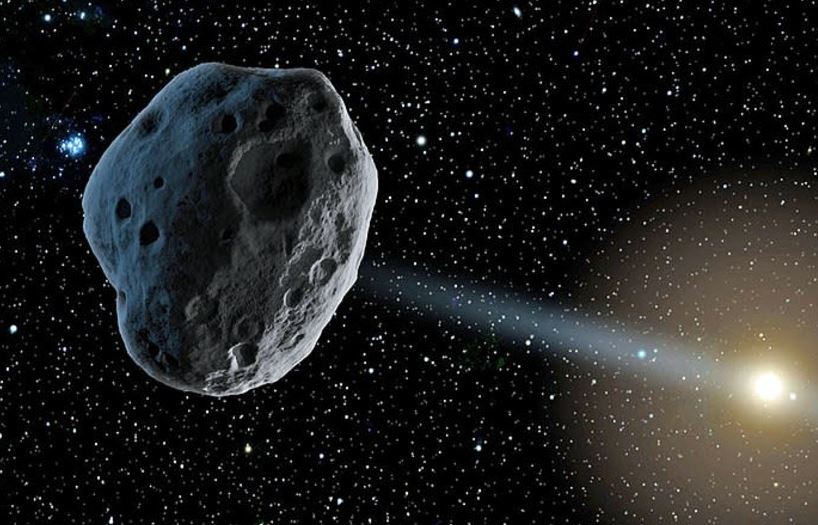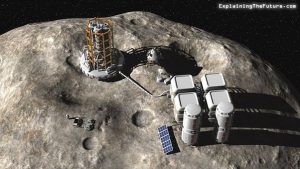TOKYO — Water may have been brought to Earth by asteroids from the outer edges of the solar system, scientists have said after analyzing rare samples collected during a six-year Japanese space mission.
To shed light on the origins of life and the formation of the universe, researchers are examining material brought to Earth by the asteroid Ryugu in 2020.
The 5.4 grams (0.2 ounces) of rock and dust were collected by a Japanese spacecraft called Hayabusa-2, which landed on the celestial body and fired an “impactor” across its surface.
Studies of the material are beginning to be published, and in June a group of researchers said they had discovered organic material showing that some of the building blocks of life on Earth, amino acids, may have formed in space. .
In a new paper published in the Journal Nature Astronomy, scientists say samples from Ryugu could provide clues to the mystery of how oceans appeared on Earth billions of years ago.
“Volatile, organic-rich C-type asteroids may have been one of Earth’s main sources of water,” said the study, published Monday by scientists from Japan and other countries.
“The release of volatile matter (i.e. organic matter and water) on Earth is still a notable topic of debate,” it said.
But the organics “found in the Ryugu particles identified in this study likely represent a significant source of volatiles.”
The scientists speculated that such material likely has an “extra-solar origin”, but said it “is unlikely to be the only source of powered volatiles on early Earth”.
Hayabusa-2 launched in 2014 on its mission to Ryugu, some 300 million kilometers away, and returned to Earth orbit two years ago to drop a capsule containing the sample.
In the Nature Astronomy study, the researchers once again hailed the insights made possible by the mission.
“Ryugu particles are undoubtedly among the least contaminated solar system materials available for laboratory study, and ongoing studies of these valuable samples will certainly advance our understanding of early solar system processes,” the report said.
- Editor / additional report by AFP





